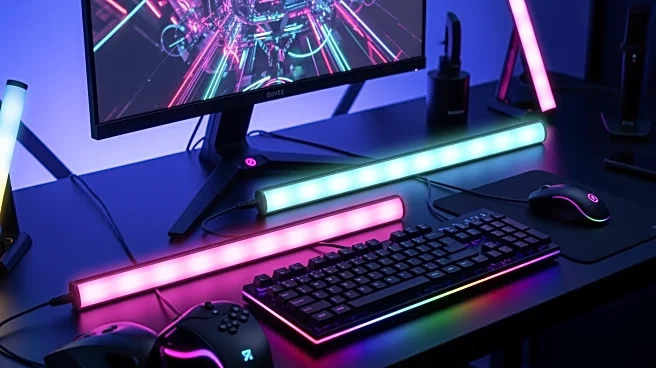What's Happening?
Govee LED light bars are being marketed as an affordable upgrade for PC gaming setups, offering a futuristic aesthetic with RGB lighting. These light bars, available in a discounted two-pack, are designed
to enhance the gaming environment by synchronizing with on-screen activities and music. They are compatible with smart home systems, allowing users to control them via voice commands through Alexa or Google Home. The lights can be customized using a smartphone app, which offers over 60 scene mode presets. The synchronization feature is exclusive to Windows computers, expanding the immersive experience by matching the lighting to the screen's content.
Why It's Important?
The integration of smart lighting into gaming setups represents a growing trend in enhancing user experience through technology. By offering voice control and synchronization capabilities, Govee LED light bars cater to the increasing demand for personalized and immersive gaming environments. This development highlights the intersection of smart home technology and entertainment, potentially influencing consumer preferences and driving innovation in the gaming industry. The affordability of these products may also make advanced lighting solutions more accessible to a broader audience, encouraging further adoption of smart home devices.
What's Next?
As smart lighting technology continues to evolve, we can expect further advancements in customization and integration capabilities. Companies may explore partnerships with gaming developers to create more interactive lighting experiences. Additionally, the expansion of compatibility with other operating systems could broaden the user base. The trend towards smart home integration in gaming may also lead to increased competition among manufacturers, driving innovation and potentially lowering costs for consumers.
Beyond the Headlines
The use of smart lighting in gaming setups raises questions about energy consumption and sustainability. As these technologies become more widespread, manufacturers may need to address the environmental impact of increased energy use. Furthermore, the integration of smart home devices into entertainment systems could lead to privacy concerns, as data collection becomes more prevalent. These factors may influence regulatory discussions and consumer choices in the future.











